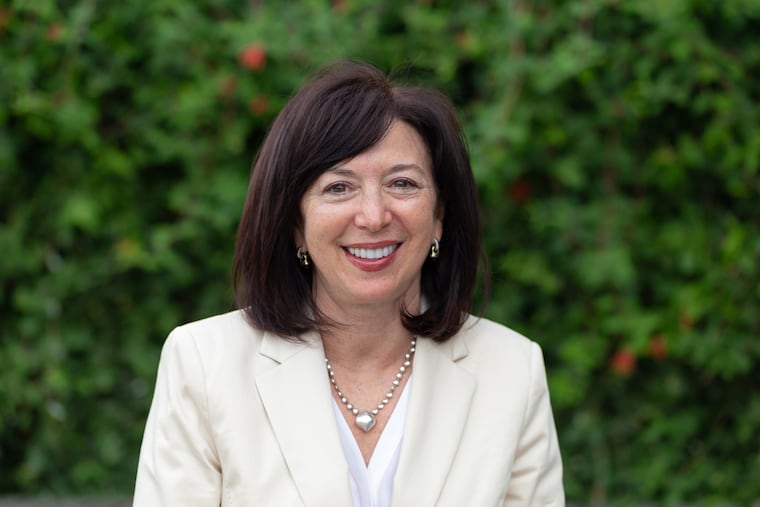RNA: Philly drug developer Aro to get $1.4 billion if it meets Ionis’ targets
U City start-up Aro Biotherapeutics sets targets to deliver RNA drugs

Aro Biotherapeutics Co. says it has signed a pact to develop drugs with Ionis Pharmaceuticals Inc. that could bring as much as $1.4 billion in cash, licensing, milestone, and royalty payments to Philadelphia-based Aro if it meets research, development, and market targets over the next several years.
Ionis, a highly profitable Carlsbad, Calif.-based company, already has “a broad pipeline of potentially transformational medicines,” but Aro adds “an even broader array of disease areas,” said C. Frank Bennett, Ionis’ chief scientific officer.
The investment “reinforces the vitality of the biotech community here in Philadelphia,” said Aro chief executive Susan Dillon. “It shows the quality of the work and the talent of the teams that are here in Philadelphia, that we can attract partnerships with such major industry giants.” She said Aro has other deals in the works.
Aro was formed by Dillon and chief science officer Karyn O’Neil to use technology that O’Neil’s team developed at Johnson & Johnson’s Janssen division in commercial drugs.
Investors led by J&J’s venture capital arm and BioMotiv LLC of Cleveland pumped $13 million in Aro in late 2018, enabling the firm to move from start-up offices at the Pennovation Center on Grays Ferry Avenue to larger lab and office space at Cambridge Innovation Center’s Biolabs at 3675 Market St. in the University City Science Center and to hire a staff of veteran drug scientists that now totals 15.
Aro holds licenses for J&J’s Centyrin technology, used to build stable proteins produced in human E. coli gut bacteria that the founders say can be efficiently attached to Ionis medicines and directed to fight cancerous tumors, genetic diseases, and “undruggable” conditions.
Dillon, a Thomas Jefferson University-trained immunologist, was a global therapeutic area head for immunology at Janssen.
O’Neil, a Penn-trained protein engineer, was director of antibody discovery and venture leader at Janssen’s Centyrex unit and is coinventor on the Centyrin patents.
“We are both scientists at our core,” said Dillon in an interview. “We were super excited that J&J supported us to get out there and see if we could attract additional investors and do the research that is required to translate the research to bring these molecules into drugs.”
Ionis calls itself the leading company in the development of medical therapies based on ribonucleic acid (RNA), which tells cells which enzymes to produce.
RNA-based therapies are adaptable to fighting both genetic and acquired diseases. But RNA is also fragile. Aro makes proteins that, combined with RNA treatments, make it easier to deliver those treatments to hard-to-reach parts of the body.
“One of the challenges in the whole field of antisense medicines is getting those drugs to the tissues where the disease is,” Dillon said.
Other technologies deliver RNA-based treatments to fight liver diseases. Ionis’ Spinraza is administered by a pump into the cerebral-spinal fluid.
By contrast, Aro’s therapies could be directed more remotely, and more efficiently, to engage tumors and other cells they were specifically designed to match.
Aro will continue to develop its own medicines outside the Ionis partnership, Dillon added.
Ionis has become a profitable company, collecting after-tax earnings of $430 million on sales of $821 million last year, thanks in part to sales of its Spinraza product, licensed by Biogen, to fight genetic spinal muscular atrophy.
Its stock market value has lately topped $9 billion, the highest since its founding in 1989 by Stanley Crooke, a former research chief at Philadelphia-based SmithKline, now part of British drug giant GlaxoSmithKline.
Ionis shares closed Thusday at $63.27, up 83 cents, or 1.33%.